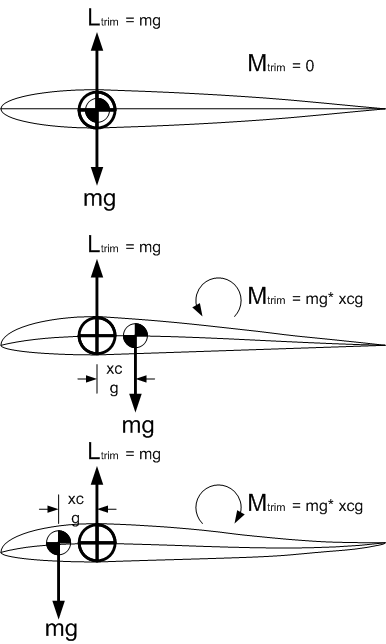#TLDR;
TLDR;
Aft CG means stalls are unrecoverable!
Why is CG relevant?
The plane's elevator is the control surface for pitch angle. The elevator is its own proper wing, and as such only has a certain amount of force it can develop before it stalls. Once it stalls, then pitch control is lost. Not a happy day.
The force that the elevator must develop is the lever arm required to balance the torque stemming from the distance between the airframes center of gravity (CG) and the wing's aerodynamic center.
Think about it as a see-saw with an elephant sitting close to the center, being balanced by a mouse 100x farther out.
The upshot is that if the CG is aft of the aerodynamic center, then the plane's nose naturally wants to rotate up, and the elevator has to push the tail up to counterbalance.
And if the CG is fore of the aerodynamic center, then the plane's nose naturally wants to rotate down, and the elevator has to push the tail down to counterbalance.
Aft CG
Aft CG is a huge no-no. It all comes down to stall recovery. If the CG is behind the aerodynamic center, then if the plane stalls the nose will simply not come down. The upshot is that you can never regain airspeed and you will enter into what's called a deep stall or leaf stall.
One common reason for cargo aircraft crashes is improperly secured loads which shift backwards immediately after rotation on takeoff. This moves the CG aft, and the plane can no longer keep its nose down and very quickly stalls unrecoverably. There is a famous video a decade years back of a US military cargo jet which had its cargo load shift back on takeoff while departing a Middle East airbase. All aboard died, and I won't post the link out of sensitivity.
Excessive forward CG
If it's too far forward then your elevator will have to produce a ton of downward force to keep the nose up. This is draggy and inefficient. But it's also (within the limits of reason) survivable.
So where to put the CG?
As far back as you safely can! Competition glider pilots move the CG to the very limits of safety because they want to stop the elevator from producing downward thrust which costs precious meters of altitude.
Jetliners want an aft CG because it saves fuel. But don't panic, they have strict limits on how far back they can move it. Because in equal parts no pilot wants to die and no amount of saved jet fuel ever covers the cost of a crashed plane.
